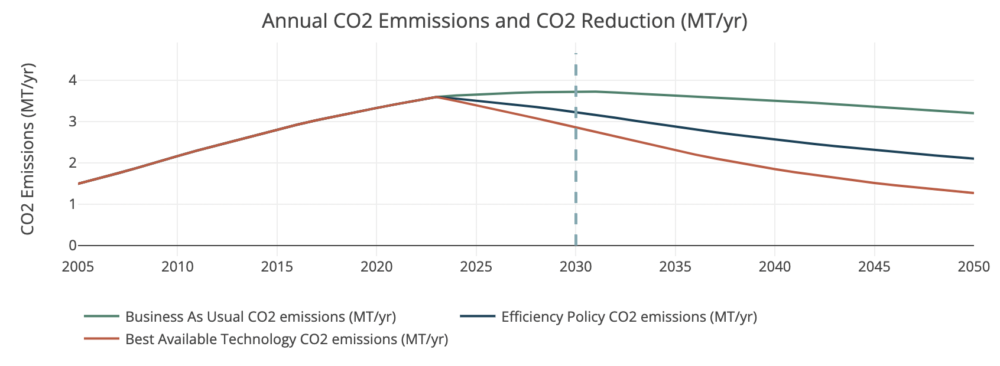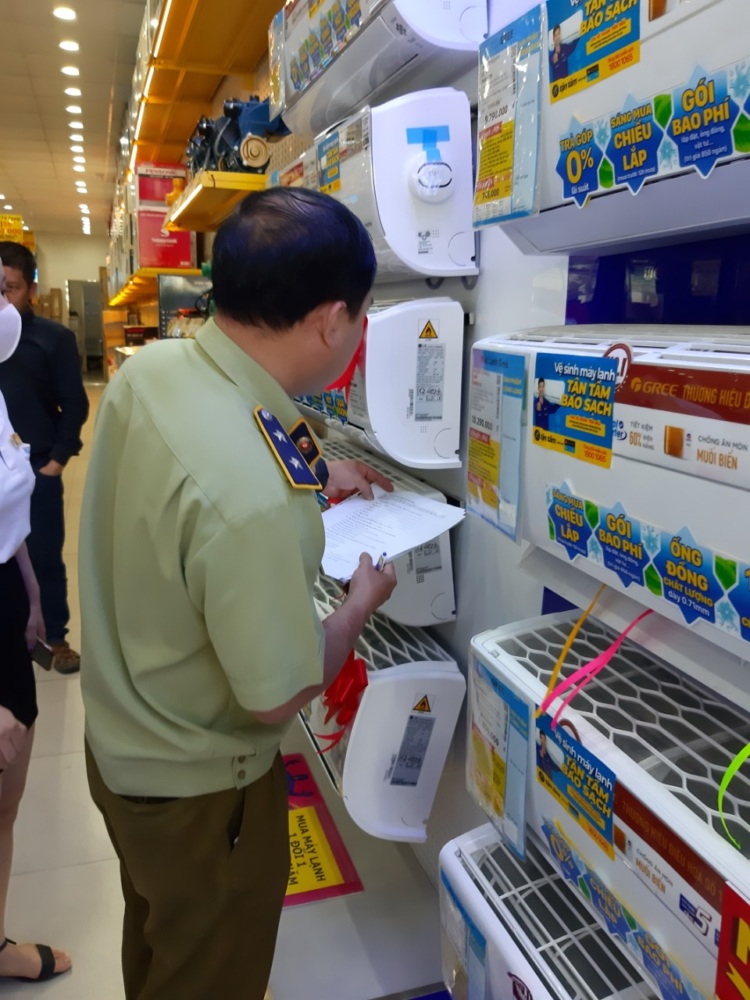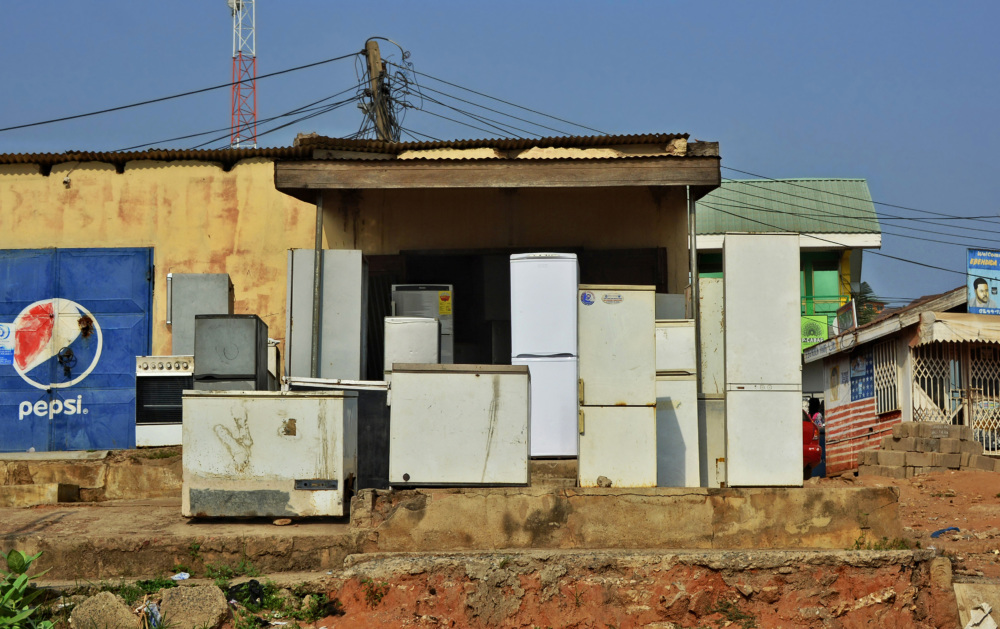Four New Air Conditioner Market Studies Capture Benefits of Energy Efficiency Policies
CLASP joins the cooling community in celebrating the first annual World Refrigeration Day by launching four new reports on rapidly expanding air conditioner markets.
Targeted energy efficiency policies for room air conditioners in just four economies could save a cumulative 65 TWh of electricity and 45 megatons of CO₂ emissions through 2030. These are the findings of the four new CLASP reports assessing the state-of-play of room air conditioner (AC) markets in Kenya, the Philippines, Thailand and Vietnam, as well as the potential impacts from different minimum energy performance standard (MEPS) and energy efficiency labeling policy scenarios.
On July 18, 2019 CLASP and our partners will host a webinar: Air Conditioner Markets & Energy Efficiency Policy Opportunities to discuss results of the four studies. Register for the webinar and read more, below.

The Philippines
The room AC market in the Philippines is unique in Southeast Asia, as it is the only market dominated by fixed-speed window-type units, at 62%. Philippines households favor small size window units, which cost less up-front, but are also less efficient. This partially explains the slow transitioning of the air conditioner market to more efficient split type air conditioners with inverter technology. The Philippines last revised the MEPS for ACs in 2002. An ambitious MEPS revision now, almost twenty years later, will be key to transforming the Philippine market towards more efficient ACs. The Philippines Room Air Conditioner Market Assessment and Policy Options Analysis uses AC product data collected in 2018 by our local partner, Innogy Solutions, from 200 retail stores in the Luzon, Visayas, and Mindanao regions to characterize the market for ACs in the Philippines. Using this data, CLASP models the economic, environmental, and energy impacts of multiple policy scenarios in the Philippines. Read the full report
Thailand
As the second largest manufacturer of room ACs in the world, Thailand provides a significant proportion of the ACs available in Southeast Asia and maintains a vibrant domestic market for ACs, 91% of which are produced locally. The efficiency levels of ACs sold in the local Thai market are higher than in some other countries in the region, a benefit reaped from the highly successful energy labeling program run by the Electricity Generating Authority of Thailand (EGAT). Thai consumers are well-informed about energy efficiency and seek to purchase high-efficiency products. However, the MEPS have not been revised since 2010, and the labeling requirements are not technology neutral, lowering the ability of these energy efficiency policies to drive the Thai market towards higher efficiency ACs. CLASP collaborated with a local expert in Thai energy efficiency policy, Niwat Phansilpakom, to collect product data and develop a comprehensive overview of the Thai AC market. CLASP assessed the impacts of raising MEPS, increasing the requirements for the labeling categories of Thailand’s voluntary EGAT No. 5 label, and expanded product coverage to higher capacity AC units. The Thailand Room Air Conditioner Market Assessment and Policy Options Analysis captures the findings of this study, and provides recommendations for how Thailand can revise energy efficiency policies to support a transition to more efficient ACs. Read the full report
Vietnam
Thanks largely to the 2015 introduction of a seasonal performance metric for ACs, cooling seasonal performance factor (CSPF), the room AC market in Vietnam is experiencing a rapid shift towards more efficient ACs. Vietnam has a long-standing and successful energy efficiency program for ACs. However, the MEPS and labeling program have not fully kept up with the market transformation occurring in Vietnam. At present, the best available technology is more than twice as efficient as the worst available AC on the market, and most ACs boast CSPFs far above the MEPS. With respect to labeling, which is intended to help consumer differentiate between lower efficiency and higher efficiency ACs, 76% of split ACs (the most popular type by far) meet the requirements to be labeled in the 4-5 star range. The technology to reduce AC related energy consumption by one third is already available in market, meaning Vietnam’s room AC market is primed for a revision of the MEPS and star rating system. CLASP’s local partner, Ecology and Environment Institute, collected data from Vietnamese AC retailers on over 1,700 ACs. In the Vietnam Room Air Conditioner Market Assessment and Policy Options Analysis, CLASP uses this data to identify appropriate policy measures to move the Vietnamese market towards more efficient products, and to estimate the impacts to consumers, local and foreign manufacturers, and at the national level through energy and emissions savings. Read the full report
Kenya
Kenya has a small, but growing, imports-based market for ACs, with annual sales of between 24,000 and 43,000 units. The market is dominated by single split, fixed speed ACs, most of which are sold to commercial entities like office buildings and hotels. The efficiency levels of ACs available in Kenya are relatively low; however, the Kenya Bureau of Standards (KEBS) just revised the MEPS for ACs from EER 2.8 W/W to 3.1 W/W. In the Kenya Room Air Conditioner Market Assessment and Policy Options Analysis, CLASP assesses the impact KEBS’ MEPS revision would have on consumers, importers and dealers, and at the national level. Our local partner, RenCon Associates, collected AC product data from Kenyan retailers and interviewed stakeholders to inform the first comprehensive review of the AC market in Kenya. The report builds upon information collected in a previous CLASP study, and the new data allowed CLASP to conduct the impacts analysis that is already being used to inform policy revisions in Kenya. Read the full report
Register for the July 18 webinar: Air Conditioner Markets & Energy Efficiency Policy Opportunities to discuss results of the four studies.
Access to robust, up-to-date market information is critical to making informed decisions when developing, implementing, and enforcing energy efficiency policies. These four market assessments and policy options analyses provide comprehensive insights into local market characteristics and opportunities for increasing efficiency through policy
These four reports are funded by the Kigali Cooling Efficiency Program (K-CEP). K-CEP is a philanthropic initiative focused on the energy efficiency of cooling to increase and accelerate the climate and development benefits of the Kigali amendment to phase down HFCs. CLASP has received grants to support the implementation of K-CEP in Kenya, the Philippines, Vietnam and Thailand. The goal of CLASP’s K-CEP program is to raise efficiency standards, improve testing efforts, provide training and other capacity building activities targeted to local needs, and implement national market transformation initiatives where appropriate.










